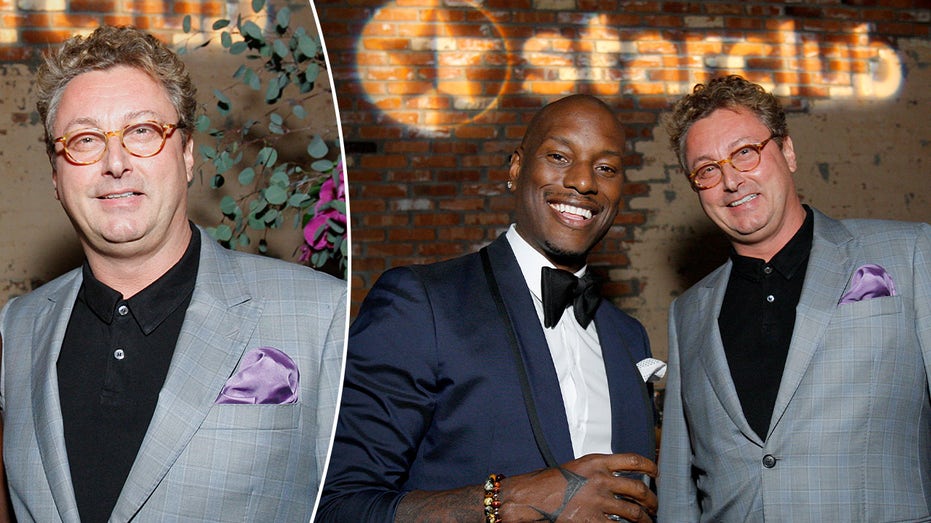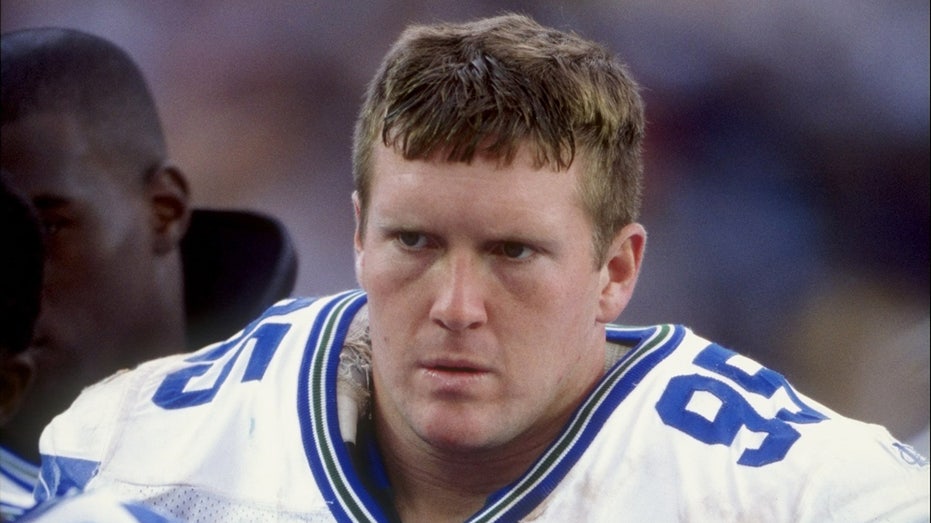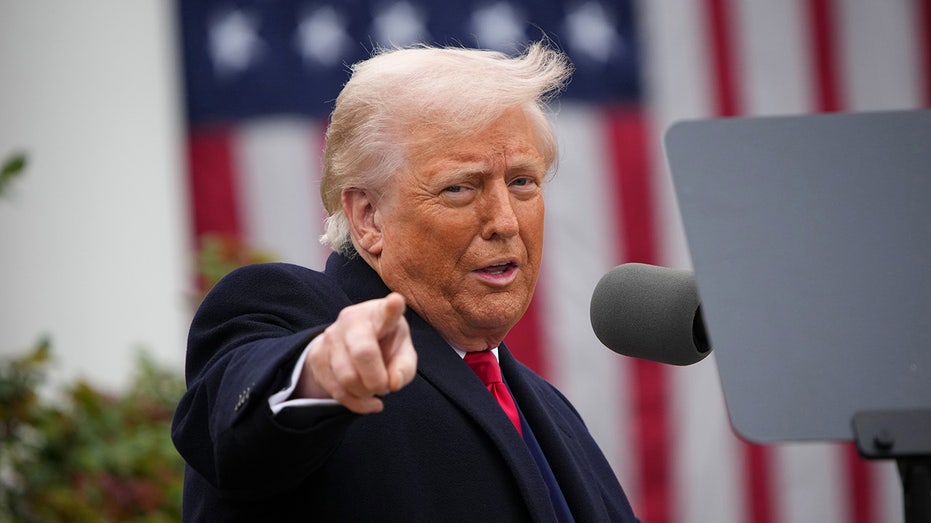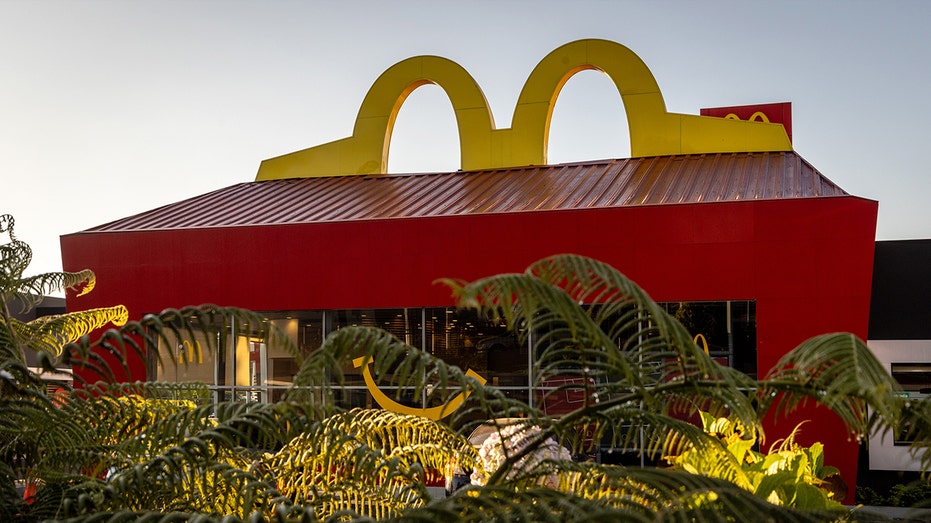- by foxnews
- 06 Apr 2025
?Blacktown is a better place now?: how a former refugee and coach built pride in his community
‘Blacktown is a better place now’: how a former refugee and coach built pride in his community
- by theguardian
- 13 Dec 2021
- in news
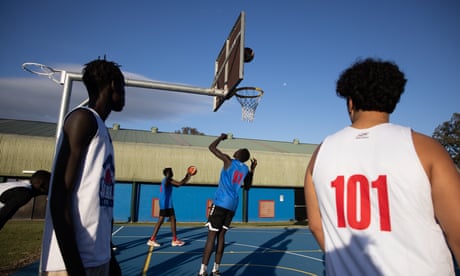
Boys are running in rows of three down the court. Legs, shouts, the smack of bouncing balls. As one boy passes to another, the third fans out to take the next pass, then he leaps and dunks. Some boys are already in flight and soaring towards the basket when they take the ball, almost delicately, then slam it through the hoop.
On the side a man in a blue tracksuit watches intently, but not so much that he fails to see a boy trying to slip unnoticed into the gym, a hard thing to do when you are 200cm tall.
"Akuei!" Mayor Chagai calls out. "Why are you late?"
The boy, hands in the pockets of his black tracksuit pants, looks uneasy. He missed a train connection at Granville, he mumbles.
"You're coming from Campbelltown? What time did you leave?"
"Ten-thirty," says the boy. That is four-and-a-half hours ago. To be fair, Campbelltown is almost 50km from here, but Chagai is not satisfied: "Why didn't you leave at 8?"
Akuei shrugs, looks down, and says quietly: "Mum was at work."
"And you had to look after the kids, right?" Chagai's tone softens. "All right." But then: "Why didn't you text me? You text next time you're going to be late. OK, jump in."
Akuei enters the line, waiting to join the boys flowing in waves down the court.
"I wanted him to explain to me what was going on," Chagai, the founder of the Savannah Pride basketball club, says. "If he gets a job and turns up late, then doesn't communicate to the boss why he's late, then he won't have that job."
Chagai, who left his village in South Sudan at the age of seven and wandered across three countries before arriving in Sydney in 2006 as a 22-year-old refugee, wants to teach his players not only how to dribble and dunk a ball but how to study and work and take their place in society. He is trying to develop not just good basketballers, but fine human beings.
The story unfolding in this spare gymnasium in Blacktown, a western Sydney municipality that contains some of Australia's most disadvantaged urban areas, is about more than sport. It is about how a community and a country are built.
Start with map and compass in George Street, in the Sydney CBD. Head 30km west and a little north, upriver. At Parramatta, strike west for another 10km, up a hill or two, down another. When you reach the heart of a wide open plain, nearer to the Blue Mountains than the sea, you're in Blacktown.
It's not a journey that many Sydneysiders who live closer to the sea ever make. Which is a shame, because the joke that journalist Joanne Vella remembers being made in the newsroom of The Blacktown Advocate might well be true: "You haven't been to Australia till you've been to Blacktown."
More than 4 million people have arrived in Australia in the past 25 years. Most newcomers have moved to the big cities, but few have moved into the inner cities, which have become gentrified, increasingly monocultural, and locked up by prohibitive housing prices. Instead, recent migrants have had to look to the urban fringe.
As a result, an unprecedented transformation of Australia's population has occurred out of sight of policymakers, captains of industry, arts and culture leaders, academics and journalists.
The largest overseas-born groups today are the nearly 26,000 residents born in India - Blacktown's most common surname in 2015 was Singh, followed by Smith and Jones - and 22,000 in the Philippines. Blacktown also has more people born in South Sudan than any other municipality in Australia.
These migrants followed other waves of migrants since the second world war: first the British and Irish, then other Europeans, including Italians, Hungarians, Poles and Maltese, the last of whom came, in many cases, to work in the market gardens on the city's edge.
Blacktown also contains Australia's largest urban Indigenous population, of about 10,000 people. It includes members of the original Darug people, but most Indigenous residents moved to Blacktown from regional New South Wales after 1960.
Blacktown's population of nearly 400,000 numbers about 180 different national backgrounds, with more than 40% of people born overseas. As late as the 1950s the municipality was mainly countryside. That means nearly everyone, apart from the Darug, is in one way or another a recent migrant.
It is Saturday afternoon at the Police Citizens Youth Club in the Blacktown suburb of Shalvey. The under-18 squad of the Savannah Pride basketball club has been training for 15 minutes, but Chagai - or "coach," as players call him - has been taking training sessions since five in the morning. All Saturday and on weeknights he trains groups from under-12 to open age - about 250 players in all, including 20 girls.
The players are mostly South Sudanese, but there are also Islanders, Lebanese, Chinese, Serbians, Italians and Anglos. One white boy from the Central Coast played just one game against Savannah Pride, in which his team was smashed. He was so impressed that he asked Chagai if he could join, and now makes the two-hour journey to Shalvey every weekend to train.
Chagai keeps all his players' numbers in his phone, and often those of their parents, too. Savannah Pride runs a homework club (suspended during the pandemic) and Chagai gets parents to send him school reports. Any student suspended from school is temporarily banned from games against other clubs. But if a player overdoses and ends up in hospital, or does something that lands him in a police cell, Chagai will turn up to take him home.
This club in western Sydney has caught the eye of the basketball world. American scouts have swooped on Savannah Pride, recruiting 23 of its players to play college and high school basketball in the United States. Duop Reath, who represented Australia at the Tokyo Olympics, played for a time with Savannah Pride. Chagai has featured in The New York Times and on the ABC's Australian Story, and is the subject of a planned movie. Joe Mantegna, head coach of Blair Academy, a basketball boarding school in New Jersey, has said that Savannah Pride is "impacting more people than most of us ever do in a lifetime".
Over two Saturdays at the Shalvey PCYC gym, Chagai tells me a little of his long journey from the savannah of Africa to the streets of Sydney. As he speaks of the friends he lost along the way he seems to be carrying sorrow, but when he talks about the game he loves, his face lights up, almost grows mischievous. He has two sides, but they come from the same place.
Sport, he says, must be fun, or young people will not play. Even more importantly, players who enjoy the game can learn to take risks and believe in themselves. The best players are great, Chagai says, not because they have skills or fitness, but because they make good decisions, free of fear.
Chagai wants his players to play instinctively, to trust themselves and their teammates. Confidence in the game can lead to confidence in work and in life. He learned all this, he says, in his journey through Africa, as a refugee.
At the age of seven, Chagai left his South Sudanese village, where his family herded cattle. Over the next 15 years he trekked to Ethiopia, then to the world's biggest refugee camp, Kakuma in Kenya, then back to South Sudan as a child soldier for the Sudanese People's Liberation Army.
He left his village with a cousin to avoid war but war followed him. Bombs fell and battles exploded around him and his companions. Many died of illness or hunger, drowned, or were eaten by wild animals.
"Nearly all the people I knew at that time are dead," he says. "No food, no sleep, hide in the swamp, dig the roots of plants to eat. No day, no night, all time was the same. Someone can be walking around and in the next few minutes, dead. As long as you breathe, that's all you know."
In Kakuma, which he reached at the age of nine, he discovered he had a rare gift for basketball, and the courage to play it. He had seen fear kill people, make them give up and drown, or die of thirst. But in the savannah, with wild animals all around, he had overcome his fear. What, then, did he need to fear on a basketball court?
As Chagai speaks, a small boy waits respectfully at a distance: could he go home? "Have you called your mum?" Chagai asks. The boy shakes his head. "Here," Chagai hands the boy his phone.
"He's new, very shy," Chagai says. "A lot of kids have no parents, or no dads, a lot of single mums. I see myself in them."
After getting back to South Sudan as a teenager, he played in Kenya, Uganda, Egypt. His talent was spotted, and he was offered scholarships to the US, Spain and France. Then he fell during a tournament and badly broke an arm. His dream of a basketball career in the US died with that fall. He accepted a refugee visa for Australia, and arrived in Blacktown in 2006.
Every refugee is unlucky, but while camps in some countries were peaceful, the same cannot be said for the South Sudanese, whose journey to Australia was marked by violence, hunger and war. Their arrival presented Blacktown with the biggest test of its multiculturalism in its history.
From the mid-2000s, groups of young black men could be seen hanging around the Blacktown CBD. They were part of a rapidly growing South Sudanese population in the municipality. The council felt frustrated that neither the federal nor state government had provided any notice - let alone funding - to help it manage the change. Many locals were also unhappy. Some demonstrated in the street, with ugly signs.
"There was a real fear at the time," says Michelle Rowland, who was a Blacktown councillor in that period and is now MP for the federal seat of Greenway, which covers half of Blacktown.
The local commander, Mark Wright, had taken the Blacktown job in 2008 with a brief to reduce youth crime, especially at the station and Westpoint mall. Westpoint had just become the first shopping centre in Sydney to ban students during school hours. Groups of young people were stealing with abandon, businesses were leaving the mall.
On Thursday nights, crowds of young people would come by train from across Sydney and gather on the fourth floor of Westpoint to watch young men of all backgrounds trade punches. Wright says it was known as "fight night".
Wright began by pulling leaders of ethnic communities, schools, welfare bodies, churches and a Westpoint manager around the same table. He asked them one question: what do we do? Out of those meetings emerged many ideas and one coalition: Com4Unity (coming together for unity).
The most important initiative came from youth workers, who polled 2,500 young people around the train station and mall about activities they wanted to see in Blacktown. People said they wanted more opportunities to dance, perform and play music.
As a result, Switch, a dance and music showcase, was held on the same Westpoint floor where "fight night" used to occur. Critically, the event was run by young people themselves.
"I still get goose bumps when I think about it," Wright says. "Rotary had the barbecue going, the mayor would be sitting in the front row, and you'd have 300 or 400 young people singing, dancing - that top floor was pumping."
After Wright left his job in 2014, and other Com4Unity leaders also moved on, the initiative did not survive. Yet the impact on Blacktown seems to have lasted. "Mark [Wright] had a very big role in transforming Blacktown," says Om Dhungel, who sits on the NSW police multicultural advisory council. "Blacktown station used to be very scary in some way. Young people standing around; you had to navigate through them so you didn't get pushed. That's all changed."
When Chagai arrived in Australia in 2006, he found the country strange, hostile. He and about 10 other young South Sudanese formed a basketball group, but whenever they tried to play a scrimmage game at the PCYC in Blacktown, one particular police officer would kick them out. A Parramatta stadium also kicked them out. I ask him why he thought that happened. "We were different, and we were black."
When the group tried to play scratch games on outdoor courts around western Sydney, groups of boys would appear and challenge them to a game. Often the boys were Islanders but some were Lebanese, Aboriginal, Caucasian. The Sudanese always won, which often caused fights. Sometimes the boys would leave and return with baseball bats, even knives. Chagai was spending all his time pulling away his boys, who wanted to fight back. He was near despair.
One day a Sudanese leader in Blacktown, Ajang Deng Biar, called him. The multicultural liaison officer at Blacktown police, Assefa Bekele, wanted to meet the basketballers. Warily, Chagai and seven other young men agreed to attend a meeting with police commander Wright.
In the meeting Wright got straight to the point: what did the players need? Chagai said they needed just one evening on a basketball court and basketballs, as they had no money.
Wright said he would arrange a month's trial at the PCYC. If there were fights or other troubles, they were out, but if the trial went well, police would extend it. Chagai asked: when is this going to start? "Right now," said Wright. And he, Biar, another Sudanese leader, Mary Mamur, and the players left the meeting and walked through the streets of Blacktown to the PCYC. Wright booked them in.
He also booked a meeting for two days later, at which he laid out the new approach to the officer who had banned the Sudanese. Bekele took the players to Rebel Sport in Westpoint and bought them two basketballs.
The trial was a success. Wright helped the group secure a three-year grant from the Department of Immigration to pay four part-time salaries. He also joined the Savannah Pride board, and is now chair. "What started out as a mentor relationship has become much more than that," says film-maker Brendan Fletcher, who is making a movie on Savannah Pride. "Mayor has no family here, and very few elders in Sydney who can play that role for him. Mark is one."
Basketball NSW and the Women's World Cup have asked the club to run a trial "dads and daughters" program focusing on South Sudanese families. Involving girls is a challenge, Chagai says. "We are trying to build up, but Sudanese parents do not like their daughters playing sport or being too long out of the house." Chagai says Sudanese boys receive more attention because their struggles have been more visible, but "a lot of girls are suffering mentally - they just hide it".
Chagai has to return to coaching. I talk to others on the sidelines of the gym. "Coach is really tough, but it's to get the best out of us," says Isaac (Achek) Chol, an 18-year-old player whose uncle is Deng Adut, the criminal lawyer from Blacktown who was the 2017 NSW Australian of the Year. Chol says that Chagai "doesn't sing out, but he tells us straight up when we're being lazy, and if you don't like it, tough".
This year Chol got into Macquarie University, but to study business administration, not law, as he had hoped. He was downcast, but Chagai told him not to lose heart; he could transfer later. "He's definitely made me more resilient," Chol says.
"Mayor is a beautiful, beautiful man," says Kasia Rettig, a Polish immigrant whose 15-year-old son, William, plays with Savannah Pride and coaches its younger boys. "My boy doesn't see his father. Mayor has been like a father to him."
Savannah Pride began as a South Sudanese club. But in 2015 three players who went to boarding school in Bathurst asked if they could bring two white friends, Will and Daniel, to training; those players are still with the club today.
Through word of mouth and socialising after games, players from other African backgrounds joined, and some Iraqis, too. A Ghanaian had an Indian friend - could he come along? Two Islander boys joined after Chagai and Joe Tau, the youth worker who had helped to run Com4Unity, organised three camps to diffuse longstanding conflicts between boys of Sudanese and Islander backgrounds. In time, Savannah Pride became the diverse club it is today.
Mayor Chagai says that Australia remains a "very tough" environment for South Sudanese people, yet over the years he has become an optimist about Blacktown.
Chagai has sat with young men charged with serious crimes, who have asked to see him from their cell. "It takes a village to raise a child is an African proverb," he reminds me.
Just the other day, one of his players, Akol Mawein, texted him from the University of Oklahoma, where he is on a scholarship worth hundreds of thousands of dollars.
Mawein sent Chagai a photo of him mopping the floor at the Blacktown PCYC with an Islander boy, an Aboriginal boy and a couple of white boys. People in Oklahoma did not know where he came from, Mawein texted. "This is the place where I started bouncing a ball when I was 10."
Chagai first called his club Star Basketball, but six years ago, he gave it the name it has today. He wanted to honour the friends he had lost. He was the lucky one. He had survived the savannah. He wanted others to survive it, too.
"We share some fates with the wild animals," he says. He still remembers watching the animals gather on the savannah, under the shade of the trees. "They just sit there together. We, too, are a group of people getting together - as a group, as a family, as a pride."
- by foxnews
- descember 09, 2016
Viral photo of McDonald's PlayPlace prompts superfan to reveal fast-food chain's stray from nostalgia
McDonald's superfan shares the standout PlayPlaces he has seen after a viral photo showed a "heartbreaking" McDonald's PlayPlace in Franklin, Tennessee.
read more